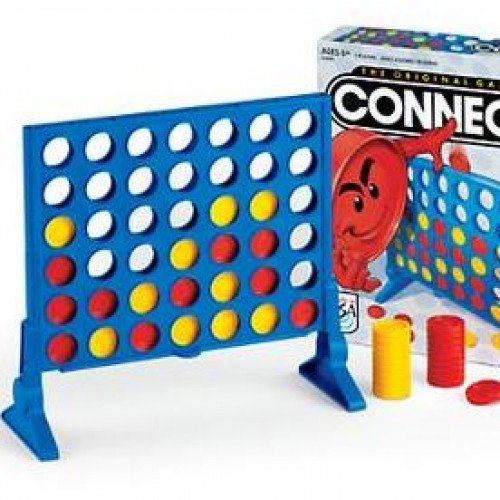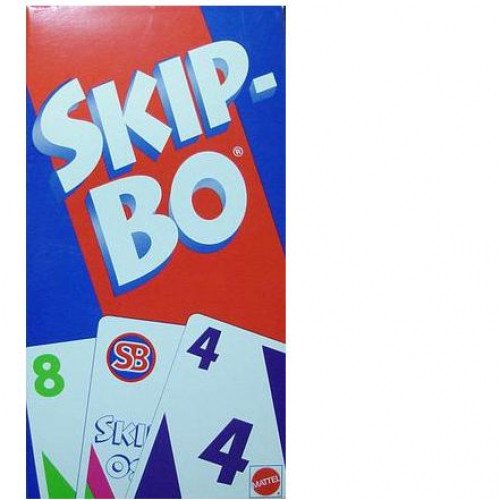CONNECT FOUR VS SKIP-BO

CONNECT FOUR
Connect Four (also known as Four Up, Plot Four, Find Four, Captain's Mistress, Four in a Row, Drop Four, and Gravitrips in the Soviet Union) is a two-player connection board game, in which the players choose a color and then take turns dropping colored discs into a seven-column, six-row vertically suspended grid. The pieces fall straight down, occupying the lowest available space within the column. The objective of the game is to be the first to form a horizontal, vertical, or diagonal line of four of one's own discs. Connect Four is a solved game. The first player can always win by playing the right moves. The game was first sold under the Connect Four trademark by Milton Bradley in February 1974. Connect Four is a two-player game with perfect information for both sides. This term describes games where one player at a time plays, players have all the information about moves that have taken place and all moves that can take place, for a given game state. Connect Four also belongs to the classification of an adversarial, zero-sum game, since a player's advantage is an opponent's disadvantage. One measure of complexity of the Connect Four game is the number of possible games board positions. For classic Connect Four played on 6 high, 7 wide grid, there are 4,531,985,219,092 positions for all game boards populated with 0 to 42 pieces. The game was first solved by James Dow Allen (October 1, 1988), and independently by Victor Allis (October 16, 1988).
Statistics for this Xoptio

SKIP-BO
Skip-Bo is a commercial version of the card game Spite and Malice, a derivative of Russian Bank (also known as Crapette or Tunj). In 1967, Minnie Hazel "Skip" Bowman (1915–2001) of Brownfield, Texas, began producing a boxed edition of the game under the name SKIP-BO. In 1980 the game was purchased by International Games, which was subsequently bought by Mattel in 1992. A mobile version of the game for iOS was released by Magmic in September, 2013. There is a new version called "SKIP-BO Mod" that comes in a white and blue case. Two to four people can play at a time as individuals, or, six or more players in teams (no more than three partnerships). The object of the game is to be the first player or team to play out their entire stock pile(s). The player with the middle age goes first. Each player is dealt 30 cards (recommended 10-15 for faster gameplay) for their pile with only the top card visible, and a hand of five cards, and the remaining cards are placed face down to create a common draw pile. The shared play area allows up to four build piles, which must be started using either a "1" card or a Skip-Bo, and each player also has up to four personal discard piles. Each turn the active player draws until they have five cards in hand, though there are cases of not drawing more cards to equal five cards, instead doing a draw of a certain number of cards. They must play either the next card in sequential order or a wild Skip-Bo card, using either cards in hand, the top card of their stock pile, or the top card of any of their four discard piles. If the player can play all five cards from their hand, they draw five more and continue playing. When no more plays are available, the player discards one card to either an empty discard pile or on top of an existing one and play passes to the next player. When a build pile reaches 12, it is removed from the board and that space becomes empty for another pile to be started; play continues until one player has played their final start card.